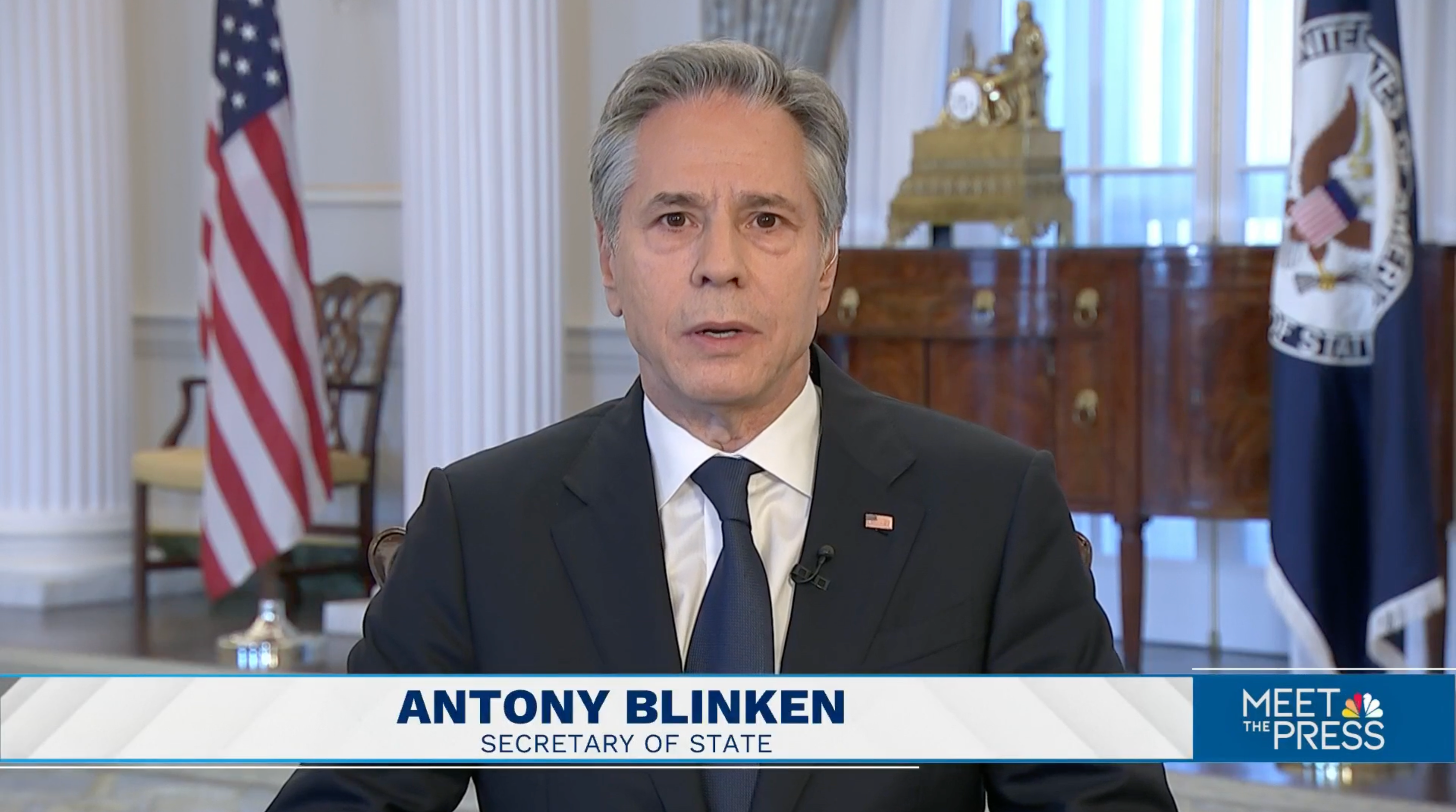On NBC’s Meet the Press Sunday, Secretary of State Antony Blinken struck back at claims that U.S. officials let Israel dodge American laws regarding weapons transfers.
“We don’t have double standards,” Blinken said. “We treat Israel, one of our closest allies and partners, just as we would treat any other country, including in assessing something like international humanitarian law and its compliance with that law.”
Luckily for observers, Blinken has left a substantial public record against which one can test this claim. His own department’s statements and actions undercut this supposed impartiality. Indeed, all available evidence indicates that U.S. officials hold Israel to a lower standard than just about any other country.
Take the State Department’s long-awaited report on Israel’s compliance with international law in Gaza, which came out late last week. The administration found that Israel had likely used U.S. weapons to commit war crimes but said there wasn’t enough evidence to draw clear conclusions about specific incidents. The upshot is that, from the Biden administration’s perspective, there is no legal reason to cut off U.S. arms transfers to Israel at this time.
In Blinken’s telling, any more forceful conclusions would have been impossible given the “incredibly complex military environment” in Gaza. “It’s very, very difficult in the heat of war to make a definitive assessment about any individual incident,” he said Sunday.
But that “very, very difficult” operating environment didn’t stop the State Department from drawing strong conclusions about Hamas’ actions in the very same report. In a three-page defense of Israel’s campaign — a feature not present in similar reports on other states — U.S. officials found with great clarity that Hamas uses human shields, intentionally targets civilians, and “consistently violates” the laws of war.
Observers are left to conclude that the U.S. has somehow attained more definitive inside information about Hamas than Israel, one of America’s closest military partners. This is in part why an independent panel of legal experts and former officials said the report was “at best incomplete, and at worst intentionally misleading in defense of acts and behaviors that likely violate international humanitarian law.”
“Once again, the Biden Administration has stared the facts in the face — and then pulled the curtains shut,” the panel, which includes two former senior officials at the State Department, wrote in a statement.
Notably, Blinken’s ‘fog-of-war’ standard only appears to apply to Israel. “In other contexts, the U.S. does not find it difficult at all to assess violations of international law,” Sarah Yager, the Washington director at Human Rights Watch, told reporters Monday.
Yager pointed to the case of Russia’s full-scale invasion of Ukraine, about which it took Blinken less than a month to announce that “war crimes had been committed by Putin’s forces.” “Based on information currently available, the U.S. government assesses that members of Russia’s forces have committed war crimes in Ukraine,” he said.
Indeed, Blinken has even accused Russia of ongoing war crimes in Ukraine, suggesting that he’s capable of making such determinations on the fly. “Russian forces and officials have committed – and continue to commit – war crimes and crimes against humanity in Ukraine,” he said in early 2023.
The standard also doesn’t seem to apply to the warring factions in Sudan. Seven months after the start of a brutal civil war in that country, Blinken declared that both sides “have committed war crimes” in the latest conflict, a conclusion he based on the State Department’s “careful analysis of the law and available facts.”
In the cases of Sudan and Russia, the State Department leaned heavily on reports from NGOs and human rights advocates, who conducted key investigations of alleged crimes. As it happens, those very same organizations have repeatedly found that Israel is violating international law in its campaign in Gaza, but Blinken has apparently chosen to ignore their conclusions.
“What the [report] says is that it's very difficult in these circumstances where security partners are engaged in armed conflict for the United States to assess violations of international law,” Yager said. “We know it's difficult because we did that work, and we presented the evidence to the U.S. government.”
- Israel violating US and international law, ex officials say ›
- Will the human rights movement survive the Gaza war? ›
- Report: Israelis using Gaza civilians as human shields | Responsible Statecraft ›
- Dem-aligned think tank blasted for Blinken appointment to board | Responsible Statecraft ›
















